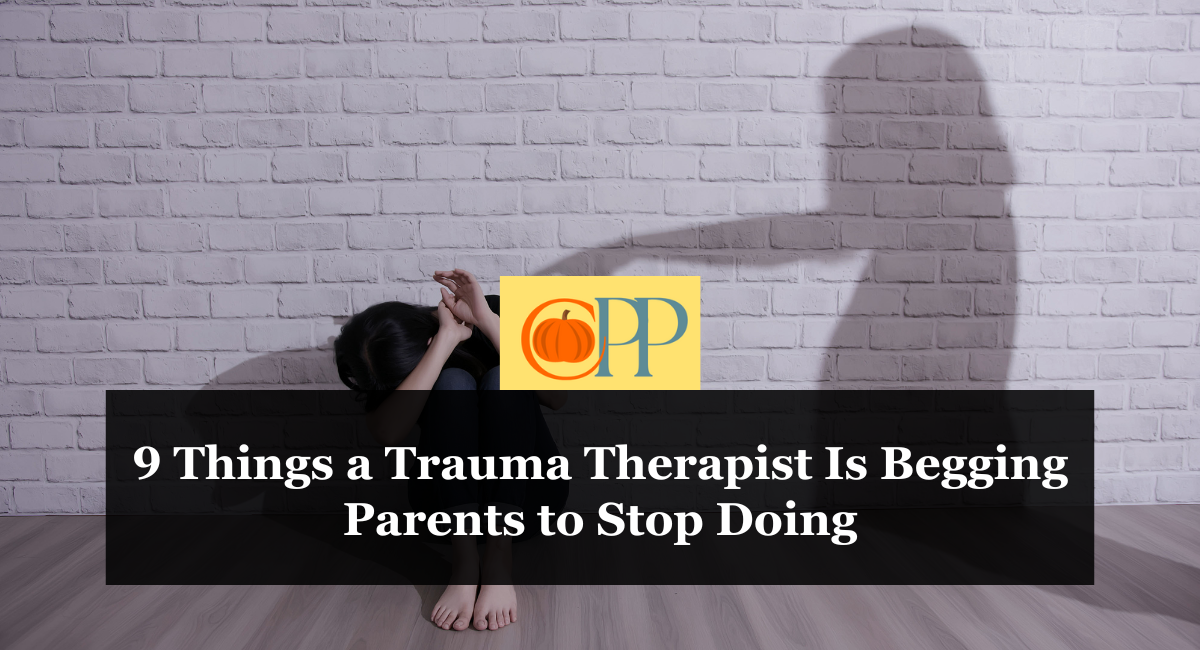Parenting is a journey filled with joy, laughter, and unconditional love. But let’s face it, it also comes with its fair share of challenges.
Sometimes, well-meaning behaviors can unintentionally have a negative impact on a child’s emotional well-being, potentially contributing to trauma.
Trauma therapists see the long-term effects these seemingly harmless habits can have on children, and they’re here to shed light on what to avoid.
The Yelling Frenzy: Words Can Sting More Than You Think
Children thrive in environments where they feel safe and secure. Yelling, even if not directed at them specifically, creates a chaotic and frightening atmosphere.
Why it Hurts: Constant yelling can make children feel unsafe, anxious, and on edge. It can also damage their sense of self-worth and make them feel like they’re constantly walking on eggshells.
The Calmer Approach: Take a deep breath! Practice effective communication techniques. Talk calmly and explain your expectations. Model anger management skills by expressing frustration in a healthy way.
The Silent Treatment: Leaving a Child Feeling Isolated
Giving your child the silent treatment might seem like a harmless way to express disappointment, but it can be incredibly damaging.
Why it Hurts: The silent treatment isolates your child and makes them feel like they’ve done something terrible. They might internalize the blame and struggle with feelings of rejection.
The Healing Response: Open communication is key. Talk about what’s bothering you in a calm and clear way. Let them know they’re loved and supported, even when you’re upset.
The Shaming Cycle: Hurting Self-Esteem with Harsh Words
Shaming a child for their behavior might seem like a quick way to correct it, but it can have lasting negative consequences.
Why it Hurts: Shaming attacks a child’s core sense of self. It can lead to low self-esteem, self-doubt, and difficulty developing healthy coping mechanisms.
The Positive Reinforcement Path: Focus on positive reinforcement. Praise good behavior and offer constructive criticism without resorting to insults or put-downs.
The Burden of Adult Problems: Protecting Innocence from Adult Worries
While honesty is important, burdening a child with adult problems can be overwhelming and create anxiety.
Why it Hurts: Children lack the emotional maturity to handle adult worries. They might feel responsible for solving problems they have no control over, leading to stress and fear.
The Age-Appropriate Approach: Shield your child from unnecessary stress. Provide reassurance and let them know they’re safe. If needed, offer age-appropriate explanations without overwhelming them with details.
The Comparison Trap: Highlighting Individuality, Not Competition
Comparing your child to siblings, classmates, or even idealized versions can create feelings of inadequacy and self-doubt.
Why it Hurts: Constant comparisons create an unhealthy sense of competition and can damage a child’s self-esteem. They might feel like they’ll never be good enough.
The Strength in Uniqueness: Celebrate your child’s individual strengths and talents. Focus on their personal growth and encourage them to be their best selves, without needing to compete with others.
The “Crybabies Don’t Get…” Threat: Invalidating a Child’s Emotions
Dismissing a child’s feelings with phrases like “toughen up” or “crybabies don’t get…” invalidates their emotional experience.
Why it Hurts: Children need to feel safe expressing their emotions, even negative ones. Suppressing emotions can lead to unhealthy coping mechanisms and difficulty regulating emotions later in life.
The Emotional Support System: Create a safe space for your child to express their feelings. Listen without judgment, offer comfort, and teach them healthy ways to manage their emotions.
The “Because I Said So” Ultimatum: Building Trust Through Explanation
While setting boundaries is important, relying solely on “because I said so” doesn’t foster understanding or cooperation.
Why it Hurts: Children want to understand the reasoning behind rules. Dictatorial pronouncements can cause resentment and make them feel like they have no control.
The Collaborative Approach: Explain the reasoning behind rules in a way your child can understand. Encourage open communication and answer their questions.
The “You Owe Me” Guilt Trip: Unconditional Love is the Cornerstone
Manipulating your child’s emotions with guilt trips like “you owe me this after all I’ve done” can be emotionally damaging.
Why it Hurts: Conditional love creates a sense of obligation and can damage the parent-child bond. They might
feel responsible for your happiness and obligated to fulfill your expectations, even if it goes against their own desires.
The Unconditional Love Path: Show your child unconditional love, no matter what. Support their choices and encourage them to be independent, knowing your love remains constant.
The Micromanagement Maze: Fostering Independence Through Trust
Constantly hovering and micromanaging every aspect of your child’s life hinders their ability to develop independence and problem-solving skills.
Why it Hurts: Micromanagement sends the message that you don’t trust your child’s capabilities. It can lead to a lack of self-confidence and difficulty making decisions.
The Trust Ladder: Let your child take age-appropriate risks and learn from their mistakes. Offer guidance and support, but allow them the space to grow and develop their independence.
Remember, parenting is a constant learning process. By being mindful of these common pitfalls and adopting more positive approaches, you can create a nurturing and supportive environment where your child feels safe to express themselves, make mistakes, and learn from them.
Open communication, respect for their emotions, and unconditional love are the cornerstones of a healthy parent-child relationship, one that will help your child thrive and build resilience throughout their lives.
Trauma therapists understand that parents don’t intentionally inflict harm. Their goal is to raise awareness of how seemingly harmless behaviors can have lasting effects. If you recognize any of these habits in yourself, don’t despair.
Acknowledge them, commit to change, and seek professional support if needed. There’s no shame in seeking help, and ultimately, your willingness to learn and grow will benefit your child and strengthen your bond.
